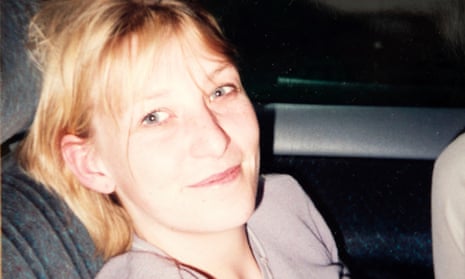The role played by senior Russian officials in the Salisbury nerve agent attack should be investigated during an inquest into a woman who died in the poisonings, the high court has been told.
Lawyers for Dawn Sturgess’s family are arguing that public concern over the poisonings is so profound that her inquest should be widened to examine who ordered the attack and the network that backed the two agents accused of actually carrying it out.
The family’s skeleton argument names two senior officials at the GRU, the Russian Federation’s military intelligence service, and a third man alleged to have been involved in the UK end of the operation.
It claims public confidence in the UK government’s ability to protect its citizens risks being undermined if those who ordered and organised the attack were not held to account.
The former Russian spy Sergei Skripal and his daughter Yulia were the initial victims of the novichok attack on 4 March 2018. Both they and a police officer, DS Nick Bailey, who was also poisoned, survived.
At the end of June 2018, Sturgess, a mother of three children, and her partner, Charlie Rowley, were poisoned in Amesbury, eight miles north of Salisbury, after he found a fake perfume bottle containing novichok. Rowley survived but Sturgess, 44, died on 8 July.
In December, the senior coroner for Wiltshire and Swindon, David Ridley, ruled that he would not consider whether any Russian state agents were involved other than the two main suspects, Alexander Petrov and Ruslan Boshirov.
In his opening remarks to the court, Mansfield described novichok as a “weapon of mass destruction” and suggested the perfume bottle containing the poison could have been left behind deliberately as part of a destabilisation campaign.
The barrister referred to a statement by the then prime minister, Theresa May, in September 2018 in which she said: “This chemical weapons attack on our soil was part of a wider pattern of Russian behaviour that persistently seeks to undermine our security and that of our allies around the world.”
Mansfield said it was possible that leaving the poison behind had been an “oversight”, but he added: “An alternative, we say, is was it deliberate? Was it left behind deliberately to be part of a pattern of behaviour alluded to by the prime minister?”
The QC said there was “acute public interest” in how novichok ended up in Wiltshire, where it could have killed thousands of people. “It is not just of national but of international interest,” he said.
He claimed in his skeleton argument the coroner’s stance meant the “key questions of how, and by whom, the operation was directed and arranged” would not be considered. He said it was “inconceivable” that the “Salisbury two” - Petrov and Boshirov – operated in “a bubble”.
Mansfield said it has been alleged that the two senior GRU officials, Vladimir Alexseyev and Igor Kostyukov, have been implicated in the attacks. He flagged up media allegations that a third man, GRU officer Denis Sergeev, was involved and present in the UK at the time of the attack.
Calling for the high court to quash the coroner’s decision, Mansfield said investigators had concluded the novichok in the perfume bottle could have killed “thousands of people”.
He said: “Widespread harm resulted from this attack: Ms Sturgess was killed; four other people suffered serious injuries in life-threatening circumstances, including a British police officer; and other police officers, members of the emergency services, paramedics and members of the public appear to have been contaminated.”
The barrister said: “The public are likely to be most concerned about the issues the senior coroner has ruled out of scope – namely the source of the novichok and the responsibility of senior Russian state figures who authorised and directed the operation – rather than the actions of the two subordinates who carried out its final stages.”
Mansfield argued the inquest should also look at issues such as:
Whether the novichok that killed Sturgess was exactly the same as that used in Salisbury.
Whether the perfume bottle was used in Salisbury and if so, how it survived unopened, for nearly four months.
